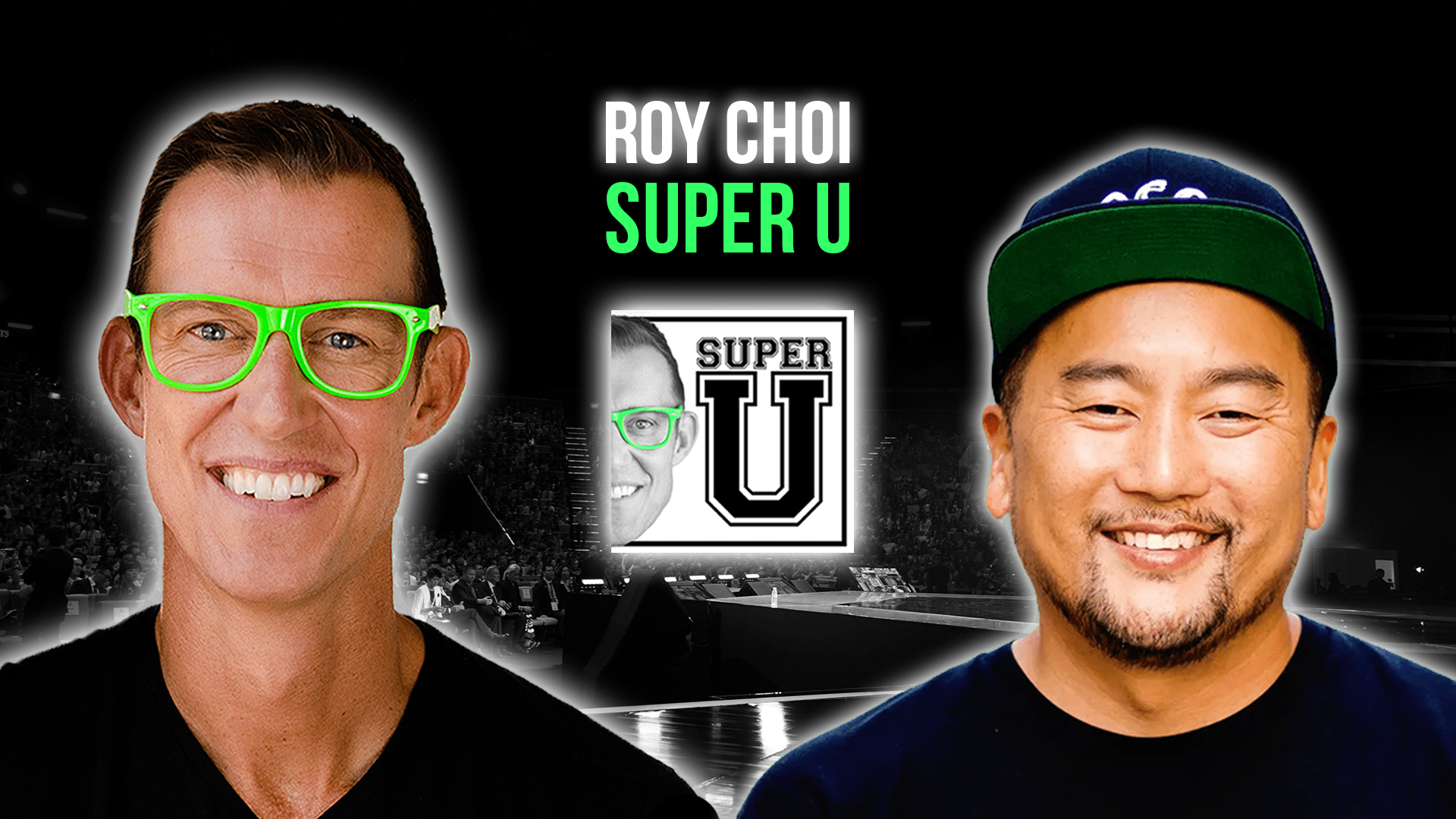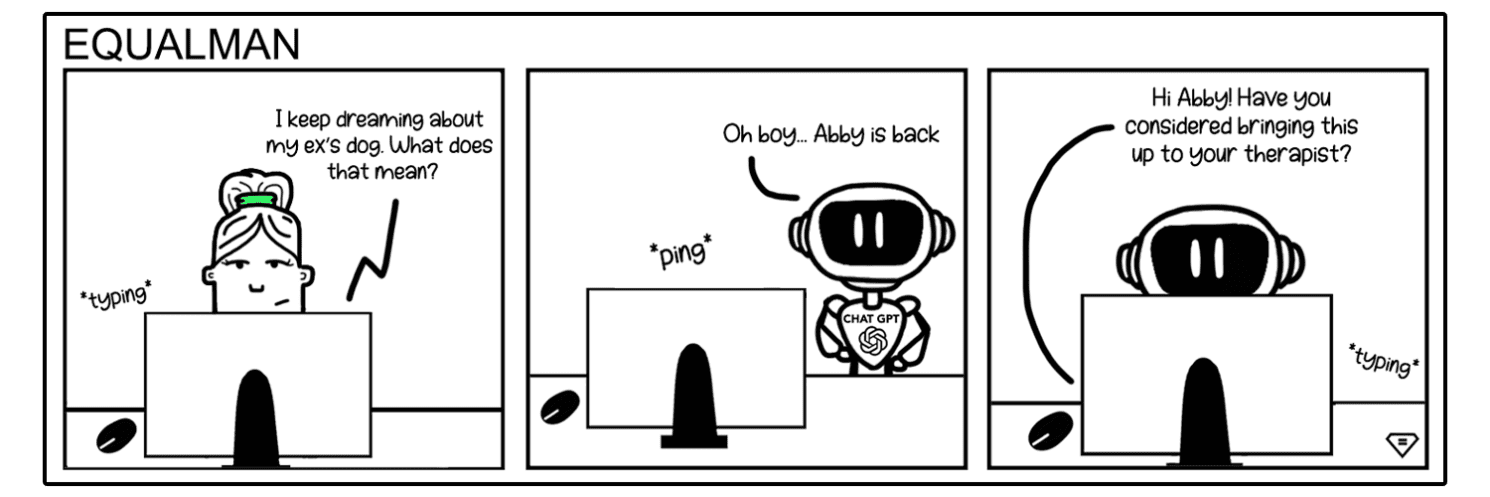Super U Podcast | 7 Super Tips with Chef Roy Choi
Roy Choi is a renowned Korean American chef who gained prominence as the creator of the gourmet Korean-Mexican taco truck Kogi. Choi is a chef who is celebrated for “food that isn’t fancy” and is known as one of the founders of the gourmet food truck movement by merging food and social media with community. His civic-minded TV show ‘Broken Bread’ won him a James Beard Foundation Award for Outstanding Host in a television series. On a global scale, Roy is co-host of the full-blown Netflix cooking series ‘The Chef Show’ with Jon Favreau. His cookbook/memoir L.A. Son was a NY Times Bestseller in 2013. In 2016 he was named TIME 100 Most Influential People in the World. And in 2017, he received the first-ever LA Times Restaurant of the Year award.
5x #1 Bestselling Author and Motivational Speaker Erik Qualman has performed in over 55 countries and reached over 50 million people this past decade. He was voted the 2nd Most Likable Author in the World behind Harry Potter’s J.K. Rowling. Qualman is also the inventor of the bestselling board game Kittycorn.
Need a sneak peek? Below are the main takeaways from the episode.
Super U Podcast | 7 Super Tips with Chef Roy Choi
Tip #1
“You know, I was kind of scared man because when your job listing kind of broke when you’re young that’s one thing you know, it’s actually fun. But when you got a family it was scary, and then my friend call me spoke Korean barbecue and a taco we start right here in Hollywood. Right by the Arclight. We started right in front of a club called a green door. Yeah, cabana. We had no business plan. And our plans just unfolded throughout the night. You know, our night brain went on, like, Let’s feed the bouncers and the bouncers like oh, this is bomb you can park right here, boom, we have a parking spot, you know, club lets out. bouncers are making room for us. Like, you know, they make like a line for us. They’re like, Yo, you guys gotta try this. And so everything just kind of fell in place right there. So that was the beginning of Kogi.”
Tip #2
“I mean, similar to what you just said, I think that sometimes you got to allow yourself time, you know that you can’t measure your success and whether or not you’re going to make it or not, or it’s going to happen by the standards that are placed on you. Sometimes it takes a lot of time sometimes. You know, what you’re doing right now may have some effect later on. 100%. Yeah, so like again in Kogi didn’t happen to me until my mid-30s. No. And so if it wouldn’t happen to me way earlier, I don’t know if I could have been able to control it.”
Tip #3
“It’s about growing, you have to be willing, you first you can’t be embarrassed or ashamed of who you were at a certain point in life because you just didn’t know any better. And sometimes you’re just going through and you grow and you’re doing things. But I think through those journeys, you have to be open to certain signals, you know, I believe in the universe type stuff, you know, like, I believe in signals and moments and, and breakthroughs you know, and the change happens when you can take you can see those things and accept them and absorb them and do something about it. You know, the reason why I say this is because if these little transitional moments, if you’re thinking about it and feeling it and contemplating it, and if it’s tapping you on the shoulder, that means that’s the time.”
Tip #4
“that part of it was we were being too Sheffy with it you know I mean like we came out our first burger we came out with charred scallion relish and in lime-like, you know lime fermented mail, and barley and quinoa and Pharaoh in our paddy with seaweed and meat Gerome be p and fish sauce. And that’s an easy sell for four bucks to a 16-year-old kid. Not so, but that we were being too “chef-y”. And again and through the journey. Maybe if we didn’t let go of our ego, we would have continued to try to one-up that recipe, right? But instead, because we’re surrounded by the community of watts and West Oakland. We can’t do anything but listen, you know. And by listening what we do is we adapt ourselves and we go back to the basics and they go back to our soul and our core.”
Tip #5
“You ever see it was a horrible movie, but you ever seen Ninja Assassin with rain? You know, like how he’s training his whole life, you know? And then, and then like he gets, you know, he becomes the bastard of the school and then he has to flee and run over the thing and then, but then he has this huge foundation of training, but then he becomes an assassin and like, that’s kind of what happened with me. You know, like, I had LeBron Dan, working at Oriol working at the Beverly Hilton all those things. He really built my foundation, so that by the time you know, he came to the point where I had to make this food you know, all of the foundation was there. So I started playing jazz, just like playing with the flavors.”
Tip #6
“Um, at first, it all sounds pretty alluring. You know, like people coming to you saying you could have 40 of these, you should be all over the world I have, you know, hundreds of 1000s of dollars millions of dollars, and then they take you to dinner and do all these things. Wow. But every single time there was like this sixth sense within me that felt like this doesn’t feel right. You know, right. And so I just followed that. You know, I think we had some arguments internally. I think maybe I stunted the growth of Kogi because I was ultimately the decision maker. Maybe I started the growth, but I think in the end, I made the right decisions for Kogi because we still own it. We’ve never taken outside money and it’s stronger than we’ve ever been.”
Tip #7
“Sometimes in life, you gotta know how to be a number two to be a number one, you know, and that’s something that we don’t teach enough right now, you know because everyone wants to be a number one, right? You know, the culture we live in, and especially you want to blow up right away overnight, right? But you got to know how to be a number two, or number three or number four, number 20. You know you got to know what it means to be the building block to that pyramid. Right? And, and there are moments where it is actually more important for you to be a silent support mechanism, you know, and that really comes from the kitchen environment. You know, sometimes when you’re in a kitchen, it’s really important even if you’re at the top of your game, sometimes you gotta like, you know, you got to be the support for whoever’s shining at that moment. Right? And you can’t let your ego get in the way like team basketball or whatever the case may be. Right, right. Right. You know, sometimes you got to pass the rock exactly, no, and but ultimately that leads to the wind. So for sometimes the moments yours, you know.”
Connect with Roy Choi:
Instagram: @chefroychoi
Twitter: @chefroychoi
Click here to subscribe and listen to the full episode.

To ensure you don’t miss future episodes, subscribe to our podcast by clicking here >> Super U Podcast. We hope these tips help unlock and unleash your inner superpower!
The Super U Podcast is hosted by #1 bestselling author and Motivational Speaker Erik Qualman.





